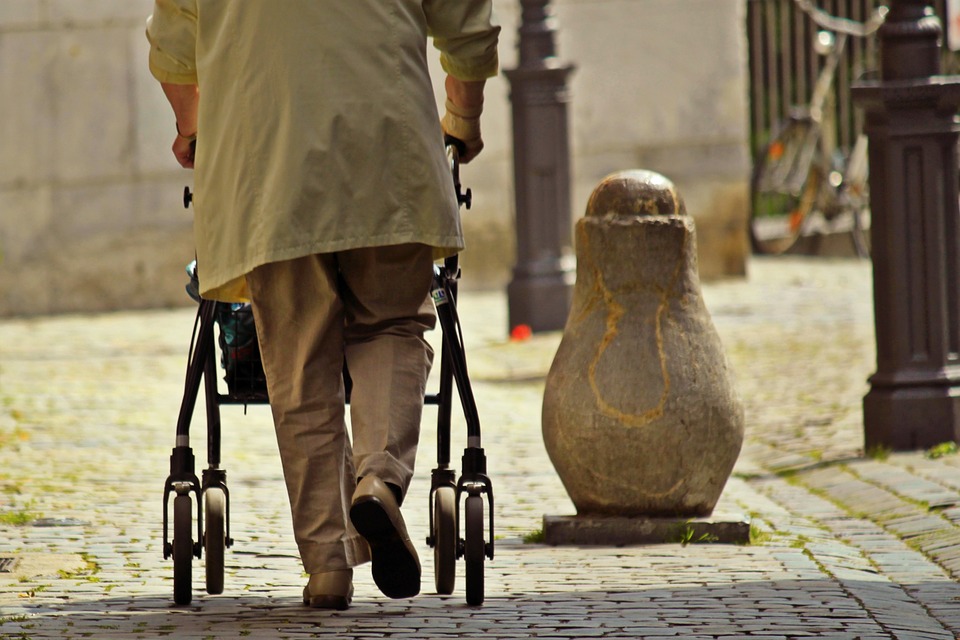6,500 BC Seniors were looking for a subsidized long-term care bed last year – a 150% spike from five years ago.
That’s according to Dan Levitt who is the provincial seniors advocate.
He told Vista Radio as it pertains to the north, our older population is waiting nearly three-quarters of a year in hospital in order to access a long-term care bed .
“From a hospital in the north, you are going to wait 239 days – this is approximately eight months that you are going to wait for a long-term care bed to open up. That is a long time to wait if you are in a hospital.”
In addition, the wait list for seniors subsidized housing in BC has sky rocketed 61% over the past five years.
In the report, it states 17% of applicants have waited five years or more.
Levitt added senior are the brunt of the province’s rental crunch a lot more than others.
“There were 14,000 people who were seniors in British Columbia who applied for that subsidized housing and that is a dramatic increase of 59% over five years and then only 6% who apply get a space meaning that 94% of people who apply don’t get it.”
The proportion of seniors in our province living independently has remained around the 90% mark over the past decade – three-quarters of seniors over the age of 85 continue to live in homes, apartments or condos.
Levitt adds more home care, long-term care beds, rent subsidies and subsidized seniors housing are required as the population of seniors in the province continues to grow.
Those who reach their 65th birthday usually live another 22 years on average.
Within Northern Health, seniors only make up 17% of the population – that equates to 49,586 residents. 37% of seniors in our health authority are vaccinated at BC pharmacies.
As of June 30th of this year, 48% of Northern Health seniors have immunized coverage as it pertains to the COVID-19 virus, which entails five doses – substantially higher than those aged 5-64 where the figure is just 10%.
In terms of alternate levels of care, the average length of stay is 101 days by far the highest of the BC health authorities. Alternate level of care (ALC) is a designation used when
patients occupy a hospital bed after their treatment has ended and they no longer require acute care services.
The Office of the Seniors Advocate released its Monitoring Seniors Services report for 2024 last week.
Seniors in Northern Health continue to experience the longest median wait times for completed cataract surgery (14.1 weeks), knee replacement surgery (67.8 weeks), hip replacement surgery (38.3 weeks) and prostate surgery (8.3 weeks) while seniors in Interior Health had the longest median wait time for completed abdominal hernia repair surgery (12.1 weeks).
Tracking the waitlist remains a challenge for some health authorities as they work to refine the system for better data capture. However, the data shows 1,264 clients on the waitlist on March 31, 2024, ranging from 63 people waiting in Northern Health to 685 in Vancouver Island Health.
The average wait time for clients on the waitlist were received from Interior Health, Fraser Health, Vancouver Coastal Health and Northern Health and ranged from 32 days to 313 days.
Levitt added government investment in seniors’ services continues to fall behind when it comes to meeting many basic needs.
“This is particularly worrisome when the seniors’ population in B.C. has grown 45 per cent over the past 10 years and will continue to increase over the next decade.”
He says the new provincial government must develop an action oriented, measurable cross-ministry seniors’ plan that defines how it will meet the growing needs of seniors.
– with files from My Kootenay Now staff
Something going on in the Prince George area you think people should know about?
Send us a news tip by emailing [email protected].






